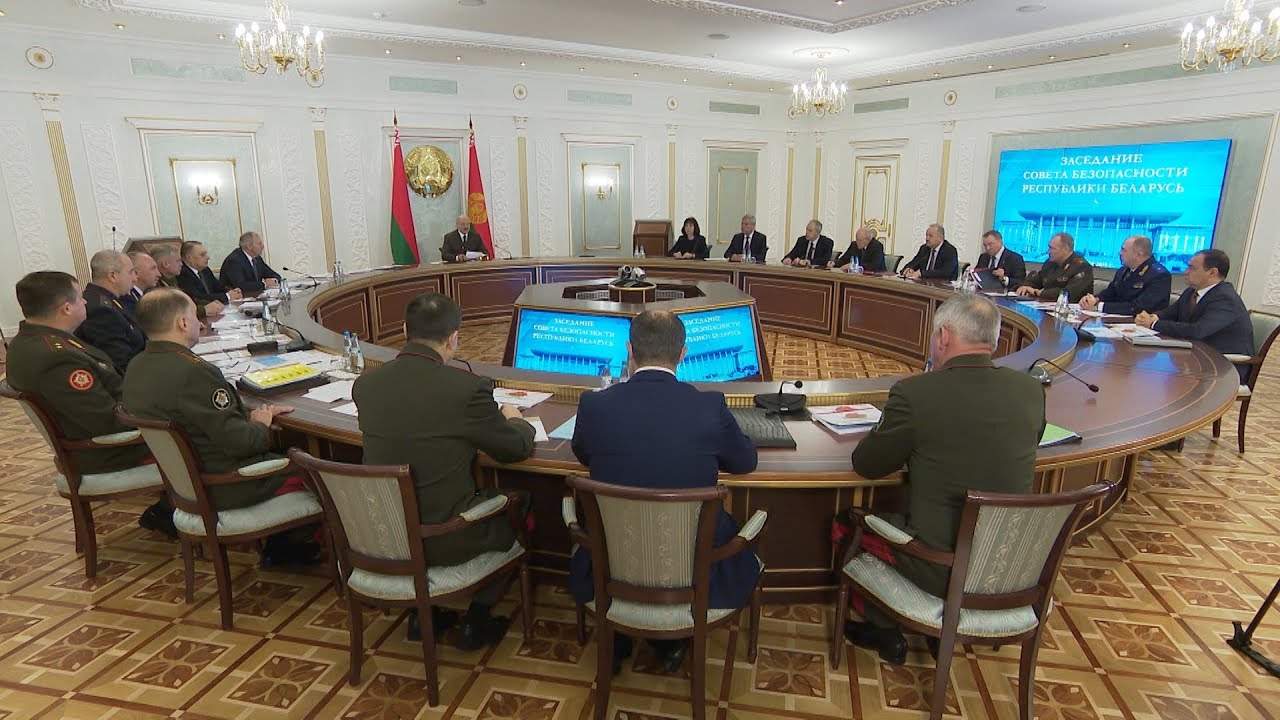Russia can get guarantees without an SMS or a QR Code
 The situation got worse
The situation got worse

Lukashenka announced a decree proclaiming that in the case of a successful attempt on his life, state power transfers to the Security Council. Such a mechanism guarantees that the interests of Russia and senior regime members would be maintained without a referendum, including renewal of the union agreement, privatisation and tax unification.
Lukashenka’s proclamation amounts to a constitutional change and therefore should require ratification by referendum, but the decree ignores this and specifies that in the event of his inability to exercise presidential powers, they transfer to the Security Council with the simultaneous introduction of a state of emergency. Such a measure, as far as one can judge the course of his thoughts, would ensure that the power of departmental heads is retained, guarantees his entourage advantages during a transition period, and ensures de facto Russian control.
Most importantly, this would prevent Belarus from deviating in a democratic direction and prevent “them” (by which he conflates Western agents and proponents of democracy) from taking advantage of their popularity and winning elections.
The Security Council currently has eight permanent members, two civilians and six generals, namely: the head of the government Raman Halouchanka, the head of the lower house of parliament Uladzimir Andreichenka, the head of the upper house of the parliament Natalia Kachanava, the head of the Presidential administration Ivan Siarheyenka, the Minister of Defense Uladzimir Khrenin, the head of the KGB Ivan Tertel, and the head of the Interior Ministry Ivan Kubrakou. The Security Council also includes the lead justices of the Supreme Court, the Control Committee, the National Bank, the Investigative Committee, the Military Industrial Committee, the Prosecutor General, the Foreign Ministry, the General Staff, the Border Committee, the Minister of Finance, the Minister for Emergency Situations, and the Head of the Security Council Lukashenka.
As with the Constitutional referendum, implementation of the decree will likely be delayed because its adoption immediately puts Lukashenka in a personally vulnerable position. However, this proposal, like the previous one (seemingly already tacitly rejected) envisaging constitutional change via referendum, should reassure the Kremlin regarding the continuity of an anti-Western foreign policy by Belarus.
Subscribe to our newsletter




Situation in Belarus
Constitutional referendum: main consequences


 Video
Video
How to count the political prisoners: are the new criteria needed?


 Video
Video
Paternalism In Decline, Belarusian Euroscepticism, And The Influence Of Russia


 Video
Video












